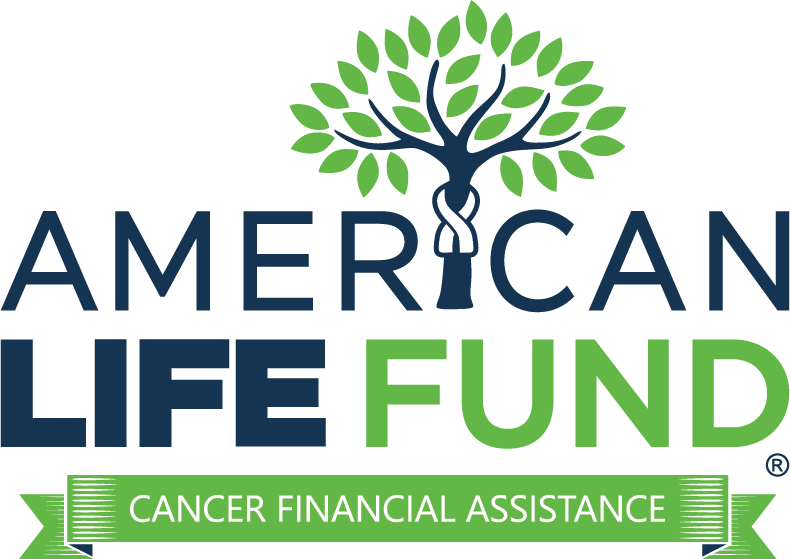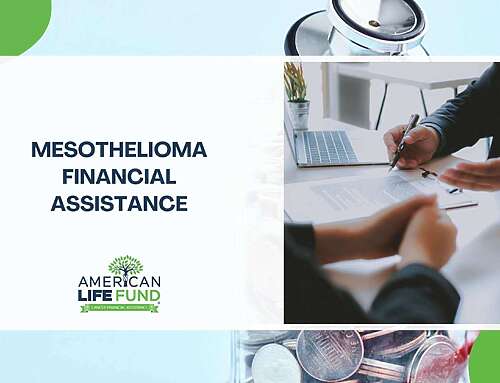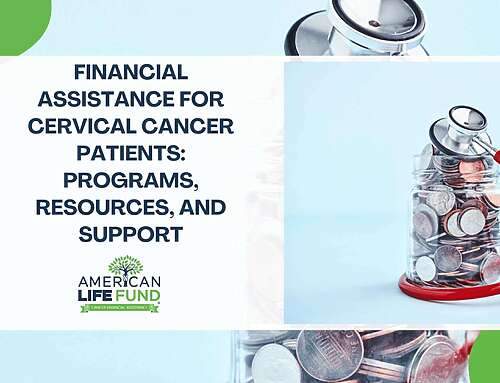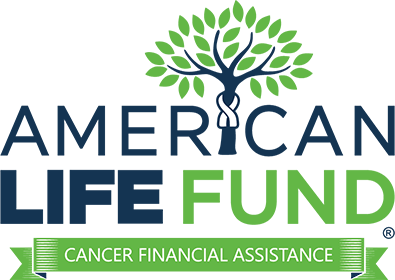The American Cancer Society’s data paints a stark picture. In 2022, more than 25,000 individuals in the United States were diagnosed with malignant brain or spinal cord tumors. It’s worth noting that there are more than 120 distinct types of brain tumors, each presenting unique challenges and treatment requirements.
Dealing with a brain tumor diagnosis is not just a medical journey but also a financial one. The duration of brain cancer treatment varies, stretching from several weeks to well over a year. The financial burden associated with brain cancer treatment can be substantial, including expenses like surgery, radiation therapy, chemotherapy, targeted therapy, and more. During these trying times, the lifeline of emotional and financial support can provide much-needed relief.

How To Find Financial Assistance For Brain Cancer Patients
Receiving a brain cancer diagnosis can be overwhelming, both emotionally and financially. Fortunately, numerous routes exist for financial assistance to ease the burden. Here’s a step-by-step guide to help you find the support you need:
Consult Medical Providers:
Start with your medical team and hospital’s financial counselors. They can guide you on programs specific to your treatment and help with insurance and co-payments.
Government Assistance:
Look into federal and state programs like Medicaid, Medicare, Social Security Disability Insurance (SSDI), and Supplemental Security Income (SSI) that can help cover medical costs.
Nonprofit Support:
Organizations such as the American Brain Tumor Association and the National Brain Tumor Society offer financial grants, services, and resources for brain cancer patients.
Cancer Center Programs:
Contact the financial offices at cancer centers for information on grants, scholarships, and charity care available.
Local Community Help:
Local groups, churches, and charities can provide financial assistance, transport, and meals.
Online Resources:
Visit websites that list financial aid options for cancer patients, including our own site which offers a curated selection of resources for brain cancer.
Support Groups and Social Workers:
Engage with support groups and consult hospital social workers who can provide personal insights and direct you to additional support.
Stay Updated:
Keep informed about changes in healthcare policies and programs that could affect your assistance options.
You do not have to face the financial challenges of brain cancer alone. You can focus on your treatment and well-being without undue financial stress by exploring these avenues and seeking assistance.
Brain Cancer-Specific Financial Grants From Organizations
If you or a loved one is battling brain cancer, there are organizations dedicated to providing financial assistance through grants and support programs. Here’s a list of such organizations, along with instructions on how to contact them:
- American Brain Tumor Association (ABTA): Provides resources, support, and funds research for brain tumor patients.
- National Brain Tumor Society (NBTS): Advocates and supports brain tumor patients through research and policy efforts.
- The Brain Tumor Foundation: Offers support services and educational resources to improve patients’ quality of life.
- CancerCare: Delivers professional counseling, financial aid, and resource assistance to cancer patients and financial assistance to families.
- Patient Advocate Foundation (PAF): Provides case management services and financial aid to help patients navigate healthcare systems.
- The SAMFund: Supports young adult cancer survivors with financial aid and resources post-treatment.
- Healthwell Foundation: Helps underinsured individuals afford critical medical treatments, including cancer therapies.
- Cancer Financial Assistance Coalition (CFAC): A network helping cancer patients access financial resources and co-payment assistance.
When contacting these organizations, inquire about their specific grant programs for brain cancer, eligibility criteria, application processes, and any applicable deadlines.
Government Financial Assistance Programs
Government programs can provide essential financial support to brain cancer patients. Explore the following programs and resources to see if you qualify for assistance:
- Medicaid: Provides free or low-cost health coverage for eligible individuals with limited income.
- Medicare: Offers health coverage for those 65 and older, and for younger individuals with disabilities, covering cancer treatments.
- Supplemental Security Income (SSI): Assists disabled adults and children with limited income.
- Social Security Disability Insurance (SSDI): Supports individuals unable to work due to disability.
- State-Based Assistance Programs: Each state offers unique programs for medical expenses. Visit your state’s health services or contact the local Department of Health and Human Services.
- Children’s Health Insurance Program (CHIP): Provides low-cost health coverage for children from low-income families that are in financial hardship, including cancer treatment.
- Affordable Care Act (ACA) Marketplace: Features health insurance plans with possible premium subsidies.
- Veterans Affairs (VA) Benefits: Available to veterans, including cancer treatment and financial aid. Contact your local VA office or visit their website.
Each program has specific eligibility criteria and application processes. Visiting the respective websites or contacting the agencies directly can provide detailed guidance on how to apply and what benefits are available.
Housing Financial Assistance
Managing housing expenses can be a significant challenge for brain cancer patients and financial assistance to families. Fortunately, various housing assistance programs and resources are available to help alleviate this burden. Explore the following options:
- Temporary Assistance for Needy Families (TANF): Offers financial aid for housing among other essentials. Apply through your state’s TANF office or the Benefits.gov website.
- Section 8 Housing Choice Voucher Program: Help with affordable housing and financial assistance to families that are low-income in the private market. Contact your local Public Housing Agency (PHA) for application details.
- Homelessness Prevention Programs: Local organizations and charities provide aid to prevent homelessness due to medical expenses. Inquire at local housing nonprofits or community services.
- State and Local Housing Programs: Check with your state or local housing authority for tailored housing assistance programs.
Mortgage and Rent Assistance:
- Mortgage Assistance Programs: Government and nonprofits offer aid for homeowners struggling with payments. Check state housing authority or Benefits.gov.
- Forbearance Programs: Contact your lender about temporary suspension or reduction of payments during hardship.
- Rental Assistance Programs: Find help with rent through state housing authorities or Benefits.gov.
Accommodation During Treatment:
- Housing Near Treatment Centers: Hospitals and centers often provide lodging options. Inquire at the patient services department.
- Ronald McDonald Houses: Offer housing for families of pediatric patients during treatment. Visit their website for more information.

Utility Assistance
Utility bills can add to the financial strain during brain cancer treatment. Explore these sources for assistance:
- LIHEAP: Provides financial aid to help with heating and cooling bills. Apply through your state’s LIHEAP office or visit the LIHEAP website for eligibility details.
- Utility Company Programs: Many providers offer bill discounts or deferred payment options for customers facing hardship. Contact your utility provider for information on assistance programs.
Transportation Assistance
Getting to and from treatment can be challenging. Here are some resources to help:
- American Cancer Society’s Road to Recovery Program: Offers free rides to medical appointments for cancer patients. Visit their website to request assistance.
- Local Medical Transportation Services: Many communities provide subsidized or volunteer-driven rides to healthcare facilities. Check with local social services or healthcare providers for available options.
Prescription & Treatment Assistance
Managing the cost of prescription medications and treatment can be a significant concern for brain cancer patients. Explore these sources for financial assistance:
Patient Access Network Foundation (PANF):
- PANF provides financial assistance to underinsured individuals for prescription medications and out-of-pocket treatment costs, including those related to brain cancer.
- How to Apply: Visit the Patient Access Network Foundation website to learn about eligibility and the application process.
NeedyMeds:
- NeedyMeds is a comprehensive resource for finding information on patient assistance programs and discount coupons for prescription medications.
- How to Access: Visit the NeedyMeds website to search for prescription assistance programs and access coupons.
Clinical Trials
Participating in clinical trials can offer brain cancer patients access to cutting-edge treatments and therapies. Explore these sources to learn more about clinical trials and how to find them:
National Cancer Institute (NCI) Clinical Trials:
- The NCI provides comprehensive information about cancer clinical trials, including brain cancer trials, eligibility criteria, and locations.
- How to Access: Visit the NCI Clinical Trials website to search for brain cancer clinical trials and find additional resources.
Cancer Centers and Hospitals:
- Many cancer centers and hospitals conduct clinical trials for various cancer types, including brain cancer. Contact your treatment center to inquire about available trials.
- How to Access: Contact your healthcare provider or treatment facility to discuss potential clinical trial opportunities for your condition.
Life Insurance
Life insurance can be crucial in providing financial security for your loved ones. However, circumstances like a brain cancer diagnosis allow you to explore options like life and virtual settlements. Here’s what you need to know:
Life Settlements
- A life settlement involves selling your life insurance policy to a third party for a large, lump sum cash payment, typically greater than the policy’s cash surrender value but less than the death benefit.
- When to Consider: You might consider a life settlement if you no longer need the policy, have difficulty paying premiums, or require funds for medical treatment or other expenses.
Viatical Settlements
- A viatical settlement is similar to a life settlement but specifically applies to individuals with terminal illnesses like brain cancer. It provides an opportunity to access a portion of the life insurance benefit while alive.
- When to Consider: Viatical settlements can help individuals with serious illnesses alleviate financial burdens and access funds for medical treatment, quality of life improvements, or anything else they choose to use the money for.
Fundraising And Crowdsourcing
Covering the costs associated with brain cancer treatment can be challenging. Fundraising and crowdsourcing are viable options to gather financial support and resources for your medical expenses. Here’s how you can get started:
Online Fundraising Platforms:
- Numerous online platforms, such as GoFundMe, Kickstarter, and Indiegogo, to create campaigns aimed at raising funds for medical expenses. Start by choosing a trustworthy platform, setting up a detailed campaign, and promoting it via social media and personal networks.
Local Fundraising Events:
- Host local events such as bake sales, charity runs, or community events to raise funds and awareness. Collaborate with local businesses and community groups to organize and publicize these events.
Support from Nonprofits and Charities:
- Organizations like the American Cancer Society or CancerCare can provide financial aid and assist with fundraising strategies. Reach out to them to explore available resources and support.
Personalized Fundraising Campaigns:
- Design a campaign that reflects your personal medical journey and specific needs. Share your story engagingly and transparently, keep your supporters updated, and thank them for their contributions.
Legal and Financial Considerations:
- Always consider the legal and tax implications of fundraising. Consult with legal and financial experts to ensure that your efforts comply with applicable laws and that funds are managed correctly.
Frequently Asked Questions About Financial Assistance For Brain Cancer Patients
What types of financial assistance are available to the brain tumor community?
The brain tumor community can access various forms of assistance, including the BTA Financial Assistance Program, which offers direct financial support.
Can I receive financial help if I have malignant primary brain tumors?
Yes, patients with malignant primary brain tumors may qualify for limited financial assistance from several sources, including cancer-specific grants and governmental aid programs that address the high costs associated with cancer care.
How does the brain tumor research community support patients financially?
The brain tumor research community often collaborates with foundations and charities to provide financial aid to patients. These collaborations may also offer access to clinical trials and new treatments, enhancing care options and support.
Are there specific financial programs for brain tumor survivors?
Yes, brain tumor survivors have access to specific programs aimed at helping them manage long-term care costs. Programs like the Healthwell Foundation and The SAMFund offer ongoing support to ensure survivors maintain quality of life post-treatment.
What is the ABTA financial assistance program, and how can it help?
The ABTA Financial Assistance Program provides direct financial assistance to brain tumor patients to help cover medical and living expenses. This can include aid for medical bills, transportation, and housing needs.
How can I access direct financial assistance for brain tumor treatment?
Direct financial assistance can be accessed through various programs offered by nonprofit organizations, cancer care coalitions, and patient advocacy groups. It’s important to reach out to these organizations to understand eligibility criteria and application processes.
Where can I find pharmaceutical access information for brain tumor treatment?
The Pharmaceutical Access Information Center provides resources and guidance on accessing necessary medications. This center can help you understand pharmaceutical benefits and insurance coverage.





